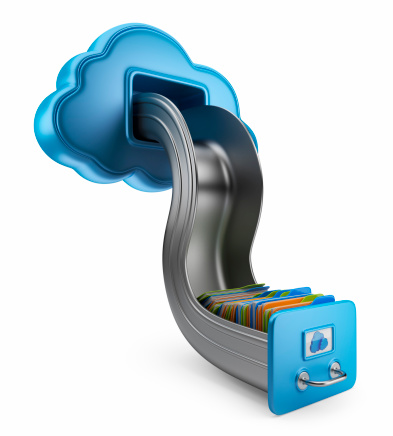Why Save Your Data Versus Dropbox?

An examination of Dropbox, Google Drive, SugarSync, and Box
The adoption of consumer/prosumer cloud solutions in the workplace threatens company security and uptime. Companies should transition to business-grade solutions that incorporate administrative features, heightened security, seamless integration, and an easy-to-use interface.
Dropbox
Over the past year, Dropbox has lost their reputation as a secure, reliable cloud storage provider. In July,2012 a Dropbox security breach allowed thief(s) to access user accounts, passwords, and sensitive files. A month later, Dropbox users were unable to access their files for up to nine hours.
The recent FixYa Cloud Storage Report found that 40% of Dropbox users complained about “Security Concerns.”
For companies like Dropbox, working in the public cloud has meant that security breaches and downtime are not isolated. This is because companies like Dropbox have no private encryption key (and generally, your files are not encrypted at all) and the entire system depends on public web services.
Through its blunders, Dropbox has single-handedly lowered business confidence in the public cloud.
Without encryption (at rest, on the server), central management of data, or policy management for users (who can upload and what type of files), Dropbox and Dropbox for Teams ultimately lacks the administrative features that ensure uptime and efficiency.
Google Drive
Google Drive is a proprietary cloud service built for users of the Google platform. Similar to Dropbox, Drive was built for sharing family photos, and not for business collaboration and sharing. Indicative of this, Drive does not offer a business alternative.
Drive and Dropbox ultimately face many of the same challenges: no file encryption at rest/on the server, no central management of data, and no policy setting for users.
Another problem arises from Google Drive automatically converting files into proprietary file types (.gdoc, .gsheet, .gslides). This prevents files from being readily shared (due to incompatibility) with internal and external parties and limits the types of files companies can collaborate on.
The awkward communication between the local drive and these proprietary files may explain why 30% of users complained about “Folders Missing,” 20% about “Syncing Issues,” 20% about “Automatically Conversion to Google Doc,” and 20% about “Unknown Error Occurred.”
SugarSync
SugarSync has been regarded as a close alternative to Dropbox. Unfortunately, just like Dropbox, SugarSync “for Personal” lacks the oversight and collaboration businesses need, including central file management and team shares.
So what about SugarSync “for Business”? Based on CNET reviews, SugarSync Manager received a score of 2.5/5 and presented serious problems, specifically data loss and lack of customer support. Additionally, 15% of users complained about “Syncing Issues.”
No doubt: SugarSync has put together a great consumer cloud solution. But at $55 for three users, businesses will be hard-pressed choosing a “business” solution with syncing issues that is neither privately hosted nor privately managed.
Box
While Box is a robust solution for enterprises, both the “Personal” and “Business” alternatives lack security and administrative features.
Box “Personal” does not encrypt files in transit or files at rest and lacks password protected sharing. This option also lacks version history and any collaborative features (group based access).
And businesses will not find a large difference between the consumer and business alternatives; Box “Business” picks up some business features like version history, a user admin console, and access management, but still does not encrypt files at rest. Custom branding, bulk add/edit users, enhanced settings and reporting, activity notification archiving, dedicated support, Active Directory integration, and mobile device management — all missing from the “Business” alternative.
Box for “Enterprises,” is a viable solution that has all the aforementioned features — but for upwards of $25/user, businesses should consider private, business-grade solutions, that don’t go down for two hours.
Finally, FixYa reported that 25% of users complained about “Upload Issues,” 25% about “Security Concerns” 20% about “Backup Files Issues,” and 20% about “Laggy Response on Web Apps.”

Client Success

“I have an offsite assistant, and all of my files (drawer-upon-drawer of them) are now available. The ability to load documents from the offsite location, and have them [available] for me exactly when I need them is the great benefit of the SaveYourData software,”
The Michaud Group






